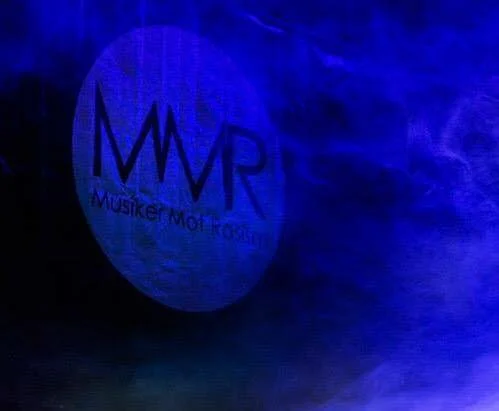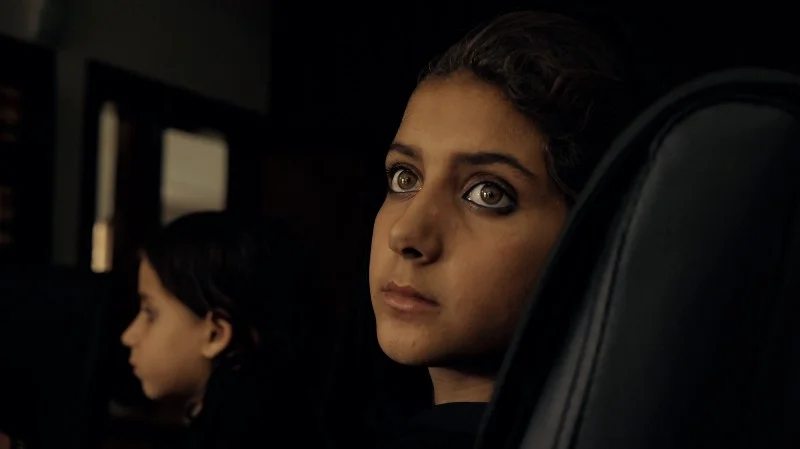A Creative Way to Handle Racism
An Interview with Alexander Goldmann
Racism is still one of the world’s sicknesses, and probably it will never vanish, but that doesn’t mean people cannot — or shouldn’t — stand up against it. Nelson Mandela once said: “No one is born hating another person because of the color of his skin, or his background, or his religion. People must learn to hate, and if they can learn to hate, they can be taught to love, for love comes more naturally to the human heart than its opposite.”
So it’s not a surprise that several — artistic and cultural — projects have been introduced to the public throughout the world in the past few years. Many include music in their peaceful anti-racism movement to educate and motivate human beings. Musiker Mot Rasism (Musicians Against Racism), which has started as a one-man project, brings together musicians — as Alexander Goldmann, the founder of the Swedish organization, say s—to “influence our audience to take a stand against racism in their everyday life and in politics and, perhaps most important, to get them to influence others”. Humana Magazin has interviewed him in order to emphasize the fact that it’s possible to handle racism in a creative way.
When did you decide to found Musiker Mot Rasism (Musicians Against Racism)?
In October 2012 racism was escalating in Sweden. For the first time, the populist anti-immigration party (“far-right” or “extreme-right” doesn’t really apply to SD) Sverigedemokraterna reached the position as the third largest party in Sweden. Islamophobia was increasing with a peak when religious calls, the Adhan, were allowed once a week from a mosque in Fittja. The leader of Sverigedemokraterna, Jimmie Åkesson has proclaimed Islam as the greatest threat to Sweden since World War II. I was frustrated with the fact that racism was becoming part of the political agenda and even more with how racism had become a part of everyday life, in social networks, at work, at the pub, etc.
As a musician myself, a natural way to react was to bring together other musicians interested in this cause and to arrange concerts with a positive anti-racism theme. It turned out to be easy to find artists to join the cause and on the 22nd of March 2013 the first gala against racism took place in Gothenburg. Alexander Bengtsson (and Daniel Poohl from Stiftelsen Expo) use the term “positive anti-racism” that has been one of the main ideas behind Musiker Mot Rasism. We arrange concerts and shows with a serious anti-racist message, but in a positive and relaxed atmosphere. Our main purpose is to influence our audience to take a stand against racism in their everyday life and in politics and, perhaps most importantly, to get them to influence others.
How is the organisation structured?
Musiker Mot Rasism started as a one-man project but became an organisation in June 2013. In late 2013 MMR had branches in Gothenburg, Stockholm and Malmö. The three regional divisions have the same agenda, the same homepage, the same graphics, etc. We collaborate with Stiftelsen Expo, Sensus (an educational association) and Kultur i Väst (a regional culture organisation) among others. All arrangements are non-profit and MMR is politically and religiously independent.
What do you think the root of racism in Sweden is?
Racism is a disease with a long history in every country and like a disease it tends to sometimes decrease and sometimes increase. In Sweden it increased in the mid 90s and is now increasing again. The reason for this could be many things. One could be political fatigue, mistrust of politicians in general which paves the way for nontraditional and populist parties. Another reason is segregation: when people never meet, it is hard to establish an understanding for different ways of living, different cultures and religious views. As anti-immigration becomes part of the political agenda, it makes it easier for people to express and share racist views that used to be uncivilized. Social networks on the Internet are also huge arenas for spreading racist views.
Why have you chosen music as a tool to achieve your goals?
As a musician myself, it was a natural starting point. The fact that all music comes from meetings between different cultures and traditions is also a heavy argument against racism. Nationalists tend to look for some national identity in literature, music, the arts etc., but, of course, there’s no such thing without interaction of other cultures. In addition, music is a powerful tool to deliver messages and an important part of most people’s lives.
How do you choose bands and musicians to perform at your galas?
We try to work with local bands in our cities. When we want to reach more people, we choose popular bands, and when we work with smaller arrangements, we get the opportunity to work with smaller bands, some of the best have been young hip hop artists. We have also worked with photographers, and we hope to work with dancers and other arts in the near future.
In March we will have galas in Stockholm, Gothenburg and Malmö. For these galas we try to book a broad selection of artists with different cultural backgrounds and with 50% women. Most festivals fail to involve female artists, which is ridiculous as there are so many, who are, of course, equal to male artists.
Do you have a target audience or would you like to reach as many people as possible?
We want to reach as many people as possible, which is why we arrange galas in the three largest cities in Sweden. As we work with popular music, mostly rock and pop, we mostly reach a somewhat younger audience, though we have worked with jazz artists as well. It depends on what venue we’re using.
How have people responded to your activities?
With great interest and enthusiasm. Artists are keen to perform at our concerts and people in general are supportive. Organisations are eager to collaborate with us.
What sorts of challenges have you had to overcome so far?
The economic issues, of course. Even though the artists play without being paid, there are great costs involved. There’s also the problem that all non-profit organisations must face: the limited time one can put down in a project when you have kids, jobs, bands, etc. Reading about yourself on racist websites is no fun, but so far there has been no real personal threats.
What do you think the impact of your work is? What do you consider success?
When we have managed to make people take a stand against racism in their everyday life, that is success. In 2013 there has been a couple of arrangements similar to ours and if we have inspired them, that’s something to be proud of! I see Musiker Mot Rasism as a part of a larger anti-racist movement, and I am sure that our success lies in how we, together, manage to take away racism from the political agenda in election year 2014.
How does Musiker Mot Rasism fit into the Swedish civil society? What are some peculiarities of the Swedish civil sphere in fact?
Swedes have a long tradition of working in organisations, most of them being non-profit. One of the major problems with the anti-racism movement in Sweden is that there are so many small organisations that don’t collaborate. As opposed to most anti-racism organisations, MMR has the advantage of being politically and religiously independent, and therefore being able to attract people from different backgrounds.
What are your plans?
For now, we are busy with planning the galas in March and some other arrangements before the elections in September. We have some vague plans for national collaborations, working with some Swedish festivals, some concerts we want to do, etc. As a rather small organisation, however, we have to focus on one thing at a time.
Photos: Musiker Mot Rasism’s Facebook page
Originally published at humanamagazin.eu.






